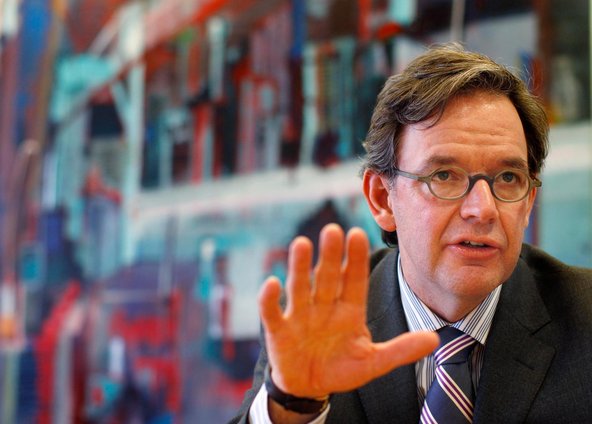But not in Germany.
In Germany, alone among the 27 members of the European Union, unemployment rates for both older and younger workers are now lower than they were when the United States slipped into a recession at the end of 2007.
In the rest of the euro zone, the unemployment rate for workers ages 25 to 74 has more than doubled over that period, to 12.8 percent. The rate for younger workers is more than 30 percent, on average — and above 50 percent in Spain and Greece. In Germany, it is less than 8 percent.
The accompanying charts show how unemployment rates for both groups of workers have changed in each of the 17 countries in the euro zone, as well as for Britain and the United States.
In terms of adult unemployment rates, the most recent figures for the United States (6.1 percent) and Britain (5.7 percent) are not that far from Germany’s figure of 5.1 percent. The major difference is in youth unemployment, which is above 16 percent in the United States and above 20 percent in Britain.
What accounts for that difference? Some of the credit goes to Germany’s unusual education and employment system for young workers, as well as to German policies that encourage employers facing downturns to reduce working hours rather than fire workers. In Germany, students are separated into different career tracks, with many put into a system that leads to apprenticeships rather than to college degrees.
But that is not the entire story. The euro zone’s troubles have helped Germany’s export-oriented economy. The weak euro has made Germany’s exports more competitive against those of countries with which it competes, most notably the United States and Japan. Since the end of 2007, the euro is down about 10 percent against the dollar and about 20 percent against the yen.
Were the euro zone to break up, there is little question that the value of a new German mark would rise sharply, while the currencies of many other members of the zone would fall relative both to the mark and other international currencies. That would depress German exports.
The charts reflecting Germany’s unemployment rates, if they were the only evidence available on world economic trends, would seem to indicate there was a mild downturn in 2009 that soon ended, with the economy recovering the next year. The United States charts would indicate a more severe downturn, followed by a recovery that began in 2010 and may now be gathering strength. In Britain, there has been much less progress since unemployment peaked in 2011.
In the 16 other euro zone countries as a group, the chart indicates a deep recession that leveled off in 2010 and 2011 but has since gotten much worse — particularly for young workers. “We will have to speed up in fighting youth unemployment,” the German finance minister, Wolfgang Schäuble, said at a conference this week, “because otherwise we will lose the support, in a democratic way, in some populations of the European Union.”
If that is to happen, it may require a change of course for Europe, where it appears the rich will continue to get richer. The European Commission’s latest economic forecast, released last week, predicted declining unemployment in Germany this year and next, but said joblessness was likely to continue to climb in France, Italy and Spain.
Floyd Norris comments on finance and the economy at nytimes.com/economix.
Article source: http://www.nytimes.com/2013/05/11/business/economy/a-faster-recovery-in-germany-than-elsewhere.html?partner=rss&emc=rss


